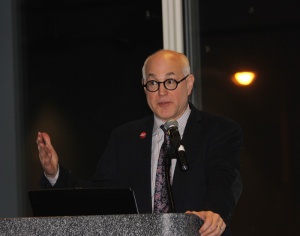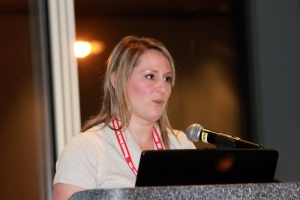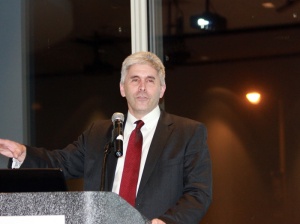Though medically unnecessary tests and procedures are often blamed for the nation’s high health care costs, patients’ requests for such superfluous treatments may not be what triggers them, suggests a study published today in the JAMA Oncology.
Conventional wisdom suggests that doctors often give unnecessary treatments because patients demand them. Some estimate this care account for a third of the $2.8 trillion spent annually.
But the survey, which tracked 60 Philadelphia-based clinicians’ interactions with about 3,600 cancer patients, found that patients asked for a particular treatment in only 8.7 percent of those exchanges. Of those requests, doctors considered only 11.4 percent to be for inappropriate or unnecessary care.
Those findings, the paper’s authors write, indicate that patient demands are likely not the impetus for unnecessary procedures. That might suggest doctors provide extraneous treatments for other reasons, though the authors didn’t speculate on what those could be.
“There just aren’t many patients’ demands or requests for unnecessary tests and treatments, and when there are, doctors comply with very few of them,” said Ezekiel Emanuel, one of the authors and chair of the University of Pennsylvania’s Department of Medical Ethics and Health Policy.
It’s not entirely clear whether the findings from this study, which focused on oncologists and cancer patients, can be generalized to medicine at large. Though cancer seems like a fitting condition to study due to its “extremely high stakes and very expensive treatments,” it is possible other specialties, such as primary care, actually elicit a lot more patient-requested procedures, said Emanuel, who also is a former White House health policy adviser.
He recommended other researchers conduct similar studies investigating other specialties in cities other than Philadelphia to see whether those results echo this study’s conclusions. When it comes to patient requests, “if you don’t see them in oncology, it’s kind of unlikely you’re going to see them a lot of other places, like cardiology or rheumatology or surgery,” he added.
The authors may be correct that patients in general don’t seek unnecessary treatment, said Jason Doctor, an associate professor at the University of Southern California’s School of Pharmacy, who was not involved in the study. “But they need to test it in a broader, more general clinical setting,” such as outpatient facilities, he said.
It would make sense to expect similar results in other specialties, said Katherine Kahn, a professor of medicine at the University of California at Los Angeles and a senior scientist at the RAND Corp., which researches health costs, among other subjects. Still, Kahn, who is not affiliated with the study, cautioned against using the results to make a definitive statement about what drives health costs.
The study indicates that patient requests can be a valuable part of practicing medicine, she said, highlighting needs doctors otherwise might not notice. “Patients often have information about their symptoms or their values or their priorities that clinicians might not know,” Kahn said.
But it takes a bit of a jump, she added, to go from establishing that idea to answering questions around “overuse and costs associated with overuse in the United States.”
That’s especially true in this study, she said, because doctors were the ones who determined and reported what wasn’t an appropriate request – and that potential bias or perspective makes it hard to know how often wasteful or unnecessary procedures actually took place.
Even so, Emanuel said, it still highlights a larger point.
Anecdotally, “It’s doctors who say, ‘we had a lot of patients ask for inappropriate tests and treatments.” By quantifying how often doctors actually think this happens – and by noting that, in practice, doctors rarely indicate this is the case – the findings suggests patient demands aren’t the source of wasteful procedures, he said.
“There’s always this question about provision of inappropriate treatment: Is it driven by patient demand or provider supply, and what’s the best way to address the problem?” Doctor said. “People should study this through – then we can understand whether we should do supply-side intervention or demand-side interventions to reduce inappropriate treatment.”
Kaiser Health News (KHN) is a national health policy news service. It is an editorially independent program of the Henry J. Kaiser Family Foundation.













